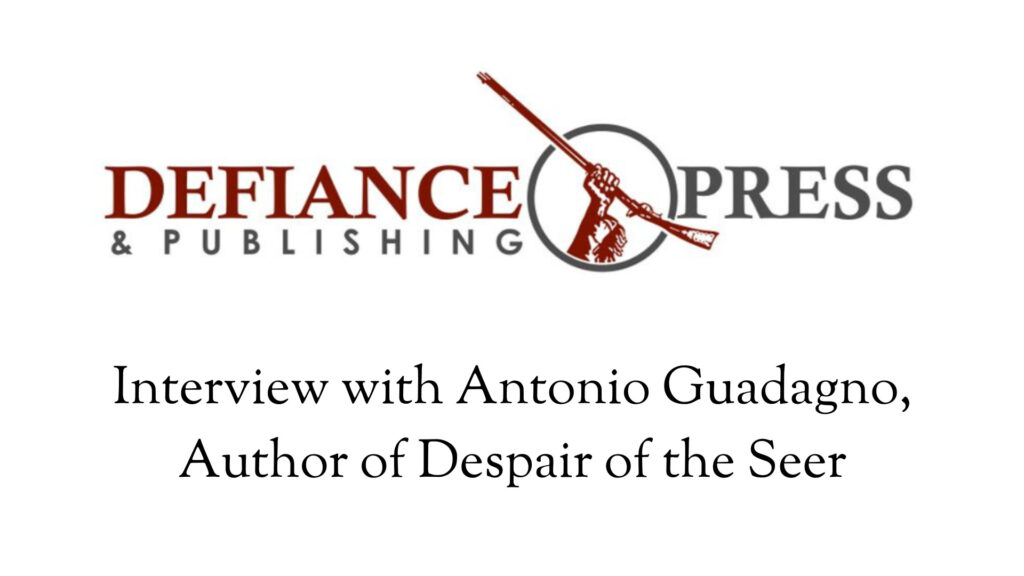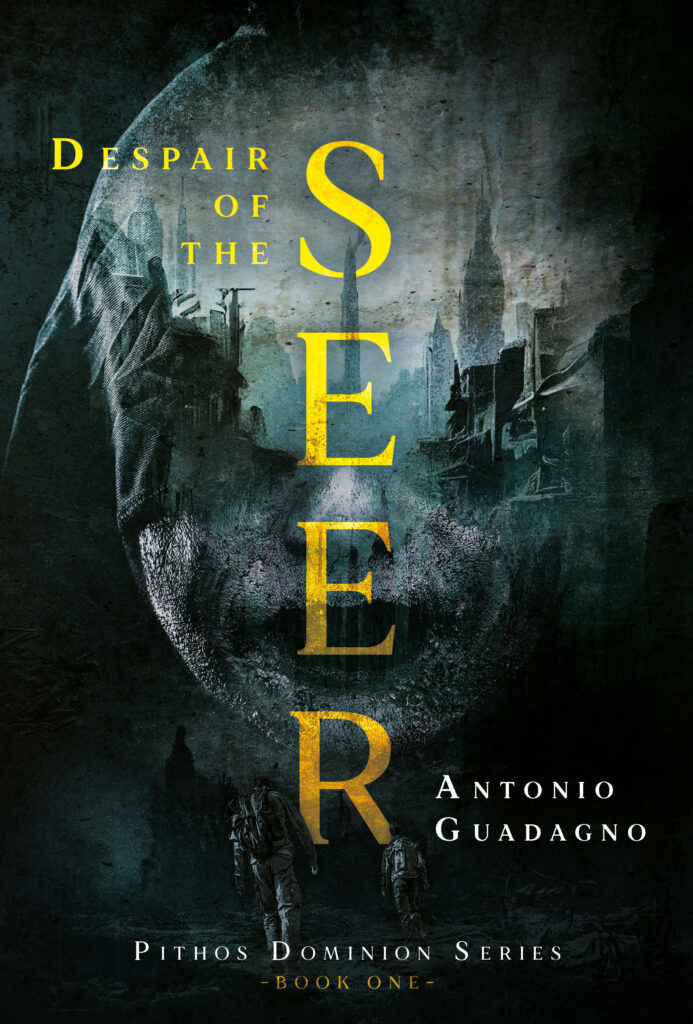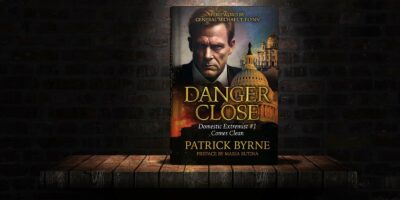What inspired you to start writing?
In middle school I began consuming books left and right, reading fiction and non-fiction. I read much of CS Lewis’ writings about linguistics and his God in the Dock essays. All of this put a love for the written word in my heart. I did well in English class, until one teacher my senior year of high school nitpicked everything I turned in and made me certain that I wasn’t skilled at writing.
The next year my college youth group planned to each do a presentation on the life of one person from the Bible. I got Paul and wrote out an accurate, but lifeless statement that I planned to stand and give. My youth leader and a trusted friend, a girl who was homeschooled until our senior year, when we graduated together, read what I wrote. They hated it, and rightly so.
We were supposed to present in about ten minutes, so I asked to go last and proceeded to rewrite it as a story, with more life and without overthinking anything, editing, or much time. About thirty minutes later it was my turn. I read what I wrote and several people, including my friend, told me that I have a talent and needed to pursue it.
I had always loved stories – from books to movies to television – so if people I trusted thought I had talent, I felt I’d be letting them down if I didn’t pursue it. I felt I’d be letting God down to waste any talent He’d given me. So I did and now I can’t stop.
How do you handle writer’s block?
What’s writer’s block? Seriously, though, I have run into a couple times when I didn’t know what needed to come next in a particular story. I have a few methods for dealing with this. Often, I find that I’m just empty and need to remember why I love storytelling. Sometimes that means binging some TV, watching a movie, listening to music, or reading. Other times it means stepping away and spending time with my family. After a short break, I’m usually ready to move forward.
I also learned something from one of the greatest science fiction authors of all time, Isaac Asimov. He always had several books going at one time. He owned many typewriters and would switch to what interested him at the moment. For me, I keep several projects moving forward at once, from short stories to non-fiction teaching, to The Pithos Dominion, or other books I have half-written or more.
Do you write while listening to music? If so, what music inspired or accompanied this current book?
Yes! There are rare occasions when I write and don’t have music, but I’m always my most productive with music. I organize my ideas for books by Spotify playlists mostly. In fact, I have a public playlist for my most recent book, Despair of the Seer, here: https://open.spotify.com/playlist/7AhJj2OP9fcYICn6ScpuZZ?si=46f1379ea87041fa
Some of the most influential songs on there were Goodbye Yellow Brick Road by Kelsey Karter, Song of Sorrow by Elle King, and Unforgiven by Metallica. I have a few of the same songs on my book 2 playlist. Occasionally I throw some on one I’m working on and then remove it after a few listens when I realize it clashes or just doesn’t fit any part of the story. There are songs I keep for the book’s mood, while others are really only relevant to particular plot points or characters.
Does one of the main characters hold a special place in your heart? If so, why?
Paxton’s father, Eugene Roald, holds a particularly special place in my heart and it wasn’t until I began a rough outline for book 2 that I realized why. He was dedicated to his work, to the point that he made mistakes, including those that ultimately led to all the troubles faced in the series. He even left his family to keep them safe and focus on his work, but this left his son, Paxton, alone.
When I was young and didn’t understand, I saw my own father this way, as a man who left us all the time for work. I didn’t realize the sacrifices he was making for our family. Now, as a father and husband, I see the responsibilities and while the only perfect Father is in heaven, I know my father did what was best. And I realized that though I hadn’t yet made all these connections when I first wrote this 15 years ago, those elements were already in the story.
Can you give us some insight into what makes Paxton Roald tick?
Paxton is smart. He’s too smart for his own good, but he’s also young and naive. He remembers his father leaving his mother and himself to go fix what he had done, but there was no logical reason his father couldn’t have stayed with them and done the same. He blamed his father and hated him from that point.
He had to become the man of the family at a young age, taking care of his mother and granny. When his father’s past came and took the only family he cared about anymore, he blamed his father for that too. He sets out on a naive journey of vengeance, which leads to the only end it could…
If you had to describe Terrance Bonifacy in three words, what would those three words be?
Terrance is awesome, but in three words, I’d describe him as: trolling, trustworthy, and wounded.
Are you working on anything at the present you would like to share with your readers about?
I’m working on the sequel to Despair of the Seer – it even has a name, but I’ll only call it Book 2 for now. I also have a few other irons in the fire, but in addition to this, I have a short story series I started working on a while back that I’ve recently picked back up.
I call it Stellar Genesis and plan to release it on social media as I write and produce it. It’s a retelling of Bible stories set in a science fiction landscape. The real hook comes when God, at the tower of Babel, disperses the people and doesn’t only confuse their languages, but changes them into different alien races, spread throughout the universe.
What books or authors have most influenced your own writing?
Two authors and two book series have had more influence than any others on my writing. The book series with the most influence has been The Chronicles of Narnia, with its stories of different worlds, taking fantasy in an entirely different direction than most. Also, the Hitchhiker’s Guide to the Galaxy is very influential for me, mostly from its humor. I once tried to write like Douglas Adams, but it didn’t go well, so I try to take from his style and meld it into my own.
The authors that have been most influential are CS Lewis, with his varied style across not only his non-fiction writing and The Chronicles of Narnia, but also his Space Trilogy which is a criminally underrated series. Also, Steven King has been very influential on me, not only from his book On Writing, which is wonderful, but his focus on characters and willingness to step outside of safe writing by giving his narrator real character. He heavily influenced the style of the short story Fenced In (included in Despair of the Seer) but I’ve also tried to sprinkle that in where it felt natural to do so. Additionally, King inspires me to pay more attention to my endings before I start writing.
How many bookshelves are in your house?
I’m not fully sure how many bookshelves there are in my house, but I know my children have some, probably about four or five. I have a home office with 8 tall bookshelves. They’re not all full of books, though about 4-5 are. The rest hold a collection of board games and have all sorts of knick-knacks on top, including my great-grandfather’s old typewriter and a very old, very creepy Anne of Green Gables doll.
What book is currently on your bedside table?
On my bedside table right now is the Hitchhiker’s Guide to the Galaxy Trilogy. I’ve read it twice before but am reading it again. It’s a nice, light and humorous read after recently going through The Stand.
Excerpt from Despair of the Seer
Paxton entered and noticed the drapes around the walls of the room. Fine fabric covered every inch of the room, and the captain sat at his desk gently weeping into a handful of them. He looked up, “Oh, Paxton. I’ll talk to you tomorrow. Please go—”
“Captain, please hear me out; I understand what you’re going through. I know he was like a son to you—”
“He is me son,” the captain said. “Don’t you go tellin’ him. Ever. I should be putting him down,” the captain struggled to continue. “I be too weak to do that. Don’t be so weak as me, Paxton. Ye have your father. Hang on to him. Your ma and granny are gone now.”
Paxton sat in the chair across from the captain next to a thick, green curtain.
“Many years ago, I be a married man. Me wife and I be pirates, sailing the Caribbean and we be very successful. We had a little boy, Jeff, and we were very happy until one quiet night in the Houston Port.
“Me wife went to pick up a shipment and didn’t come back. Uelese helped me look; he saw her after a Revenant attack. She be unconscious. He picked her up and brought her to me ship. To our ship.”
He lost focus as he thought about their ship and stroked the drapes next to him. Paxton noticed then that the drapes he thought were hung along the walls were actually dresses. Dozens of beautiful dresses.






